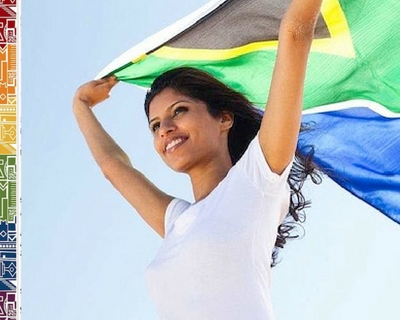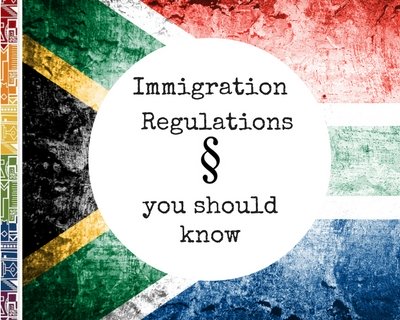Covid-19 in South Africa: The National State of Disaster has been lifted as from 5 April 2022.
Business Travel to South Africa
Business Meetings, Conferences and Authorisation to Work
Stricter business travel regulations for South Africa are in place since new immigration rules came into effect in May 2014.
The new immigration rules state that visitors to South Africa who enter the country for short-term work or business purposes, even when coming from visa-exempt countries, will need to apply in person at their foreign mission abroad for a visitor visa with consent to work, if they enter the country for short-term work purposes. However, for the purpose of 'attending business meetings' no special visa is required!
South Africa attracts annually almost 900,000 business travellers, according to StatisticsSA. Cape Town, as one of the major conference venues on the African continent and home to many international companies, hosts a wide variety of international events, exhibitions and conferences every month. South Africa's new immigration regulations need to be taken seriously by events organisers and companies inviting international business partners and clients for meetings, conferences or research. Read below about the new requirements business traveler have to comply with.
Visitor Visa for Attending Business Meetings
In terms of South African immigration legislation, ‘attending business meetings’ is not considered / defined as conducting work. Therefore, if the purpose of a foreigner’s visit is to attend business meetings at a company, organisation or institution in the Republic of South Africa, authorisation to work on a visitor’s visa in terms section 11(2) of the Immigration Act, as amended, is not required. (See original document for download here)
Visitors from visa-exempt countries attending business meetings will be granted a port-of-entry visa at border control. But: In respect of business meetings, a signed and dated letter / invitation on the letterhead of the South African company, organisation or institution and from the applicant's employer abroad, must be provided to confirm the purpose and duration of the visit.
Visitors from non visa-exempt countries, will still need to apply for a port of entry visa at their nearest foreign mission abroad.
Visitor Visa for Business Travel - Attending Conferences and Seminars
Foreign nationals from visa-exempt countries visiting the country for a short period of time not exceeding 30/90 days (depending on country) when entering South Africa on the purpose of a conference or short seminar, will not need a special visa. However, all nationals visiting from non-visa-exempt countries must apply for a visitor visa with endorsement, i.e. with 'consent to work in terms of section 11(2) of the Immigration Act'.
It is to note, that when re-entry to South Africa takes place, such as when business travellers might be visiting various countries during a 'business tour' in southern Africa, 'visa-exempt nationals re-entering South Africa from neighbouring countries will only be granted entry for a further period of seven days, rather than for the full period of the visa-exemption, so as to avoid border-hopping to extend one's stay.'
The 'Visitor Visa with Authorisation to Work' is not to be confused with a 'Business Visa', which foreigners who either are planning to invest in South Africa by opening/establishing a business or are planning to invest in an existing South African business have to apply for.
Document Requirements for a Short-Stay Visa for Visa-exempt Nationals
- a machine readable passport with at least 2 blank pages and valid for no less than 30 days after the intended departure
- a statement or documentation detailing the purpose and duration of the visit
- a valid return air flight ticket or proof of reservation thereof
- proof of sufficient financial means, which shall be in the form of a recently issued bank certified statement, for the last three (3) months
- a residential address of the intended place of stay within the Republic of South Africa and the business, residential or physical address of his or her host in the Republic
- a yellow fever vaccination certificate, if applicable. More here.
Which purposes are considered for business travel on a visitor visa?
Port-of-entry visa for business travel are granted only to nationals from visa-exempt countries as mentioned above. As purposes to gain a visitor visa for business purposes are usually considered:
- Study and Research - not exceeding 30/90 days
- Sabbaticals - not exceeding 30/90 days
- Attending Conferences and Meetings
- Voluntary or charitable work at NPOs (non-political organisations) - not exceeding 30/90 days
However, documentation proving the purpose of the visit needs to be provided to the immigration officer. In respect of study, research and sabbaticals a signed and dated letter of the respective educational institution or organisation. In respect of voluntary or charitable activities (applicants must be over the age of 18), a signed and dated letter on the letterhead of the South African non-profit organisation (NPO), including full details of the specific tasks to be performed by the volunteer.
Note, that also dependants with passports of visa-exempt countries, such as spouses/partners/children of the business traveler who is visa-exempt, may be granted a port-of-entry visa for the duration of the stay for the purpose of accompanying the business traveler.
|
Take note, that the South African Immigration Act makes no provisions for foreigners to undertake internships at companies and organisations in the country. Therefore, visas may not be issued to such foreigners, including foreign students whose studies prescribe an internship. |
Short-stay Business Travel for Emergency Work/Support
Applicants who intend conducting work in the
Republic of South Africa, including, but not limited to, technicians,
journalists and film crews, must submit a complete application for authorisation to conduct work on the
visitor’s visa in terms of section 11(2)
Document Requirements for a Short Stay Visa with Authorisation to Work
Applicants need to apply for a visitor visa 11(2) with 'work endorsement' in person at their closest embassy or consular office where the applicant is ordinarily resident or holds citizenship. Click here to find a SA mission near you.
Here is a list of documents needed for applications by passport holders who are exempt from the South African visa requirement. Please make sure to check the requirements with your respective foreign mission!
- Original passport (valid for a minimum of 30 days after departure from South Africa) with at least two blank pages left for endorsements
- Photocopy of the passport page with the applicant's biometric data/photograph
- Signed and dated letter on the letterhead of the bona fide South African corporate body (e.g. by the South African company), the medical or academic institution, sports body, social entity or cultural body of which the applicant will be conducting work.
- Signed and dated letter on the letterhead of the applicant's company or institution abroad
- Valid air flight ticket or proof of reservation thereof, and a photocopy
- Fee to return the applicant's passport, if applicable
It is highly recommended to double-check these requirements with the SA mission in your country before your visit to the mission. The time frame to allow for visitor visa applications at foreign missions is usually 5-10 working days.
Remember, that for applications of visas valid for more than three months, also the following documents (among others) have to be supplied.
- Medical and radiological report
- Police-clearance certificates
- further documentation to be handed in, enquire at your foreign mission
|
Any visa issued at a foreign mission needs to be affixed to the passport and is only be valid if it has an entry stamp from the port of entry. The date of the entry stamp is the effective date. |
Source for Business Travel Regulations page: Department of Home Affairs - image: Rawpixel/shutterstock.com
Disclaimer: This summary is for information purposes only and not for the purpose of providing legal advice. You should contact the South African mission abroad or the Department of Home Affairs for advice on the requirements. Also contact an immigration lawyer to obtain advice with respect to any particular issue or problem regarding your immigration permit or visa.


